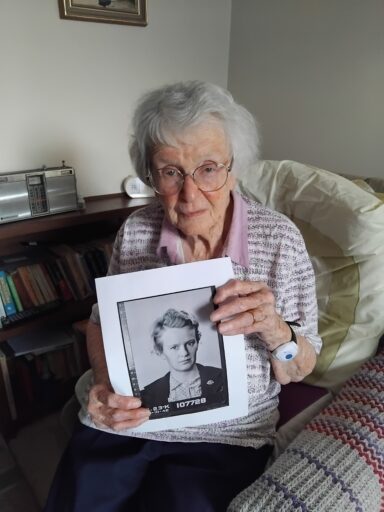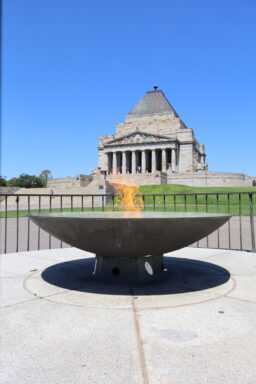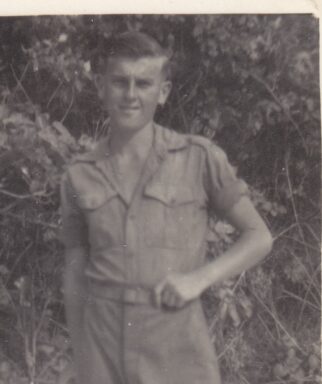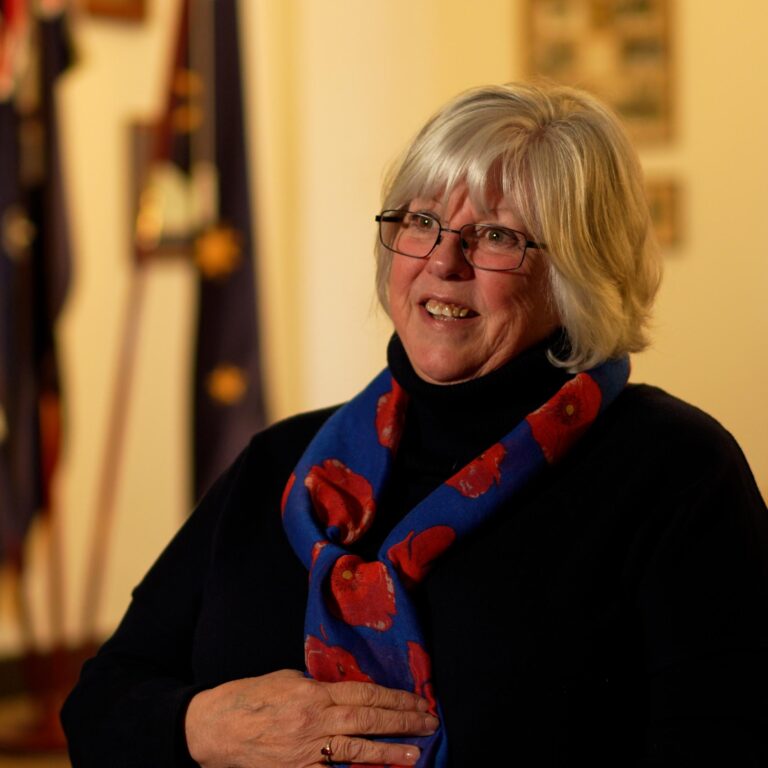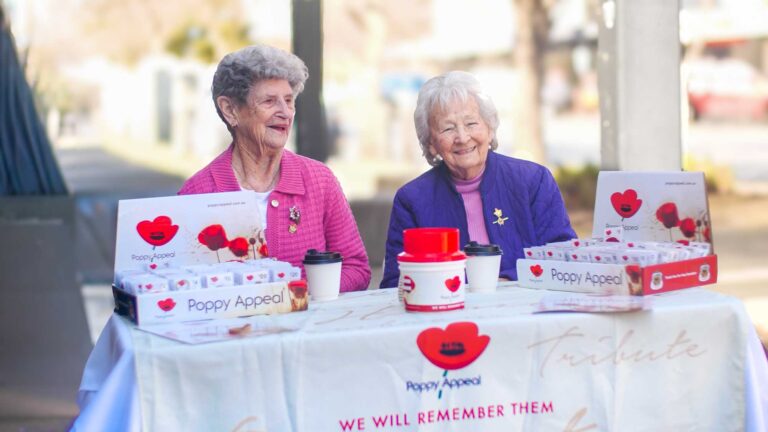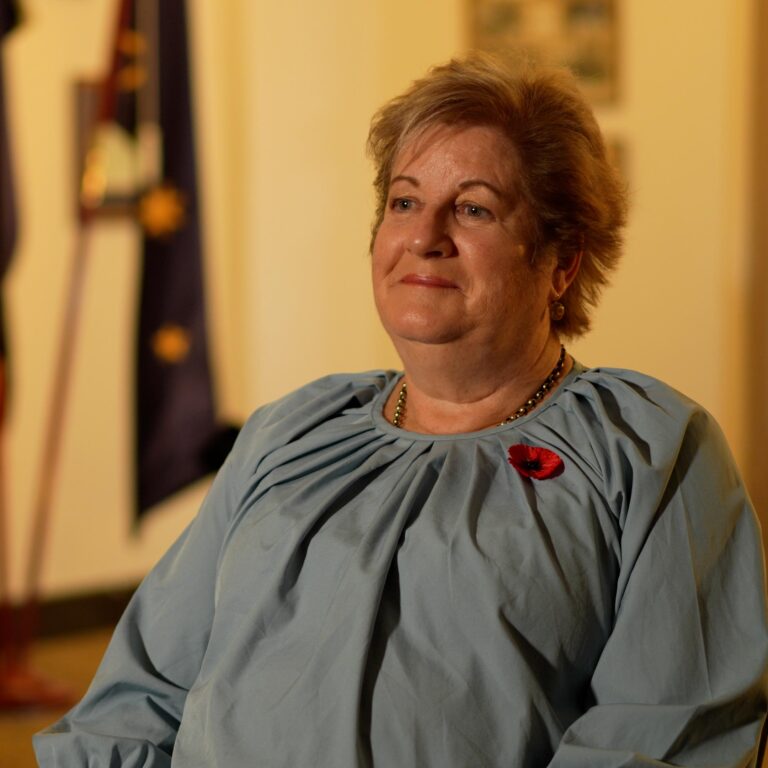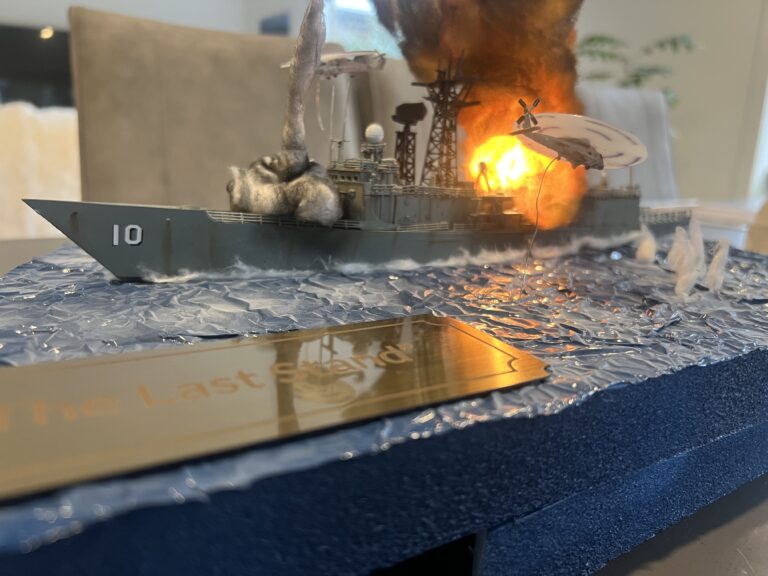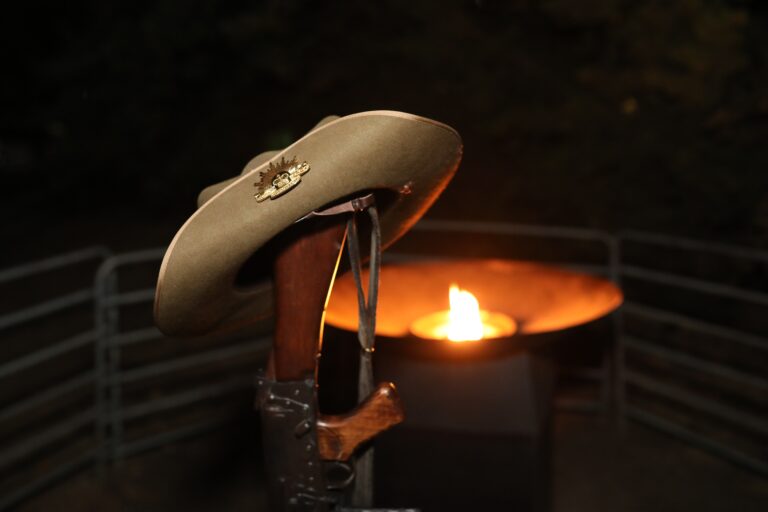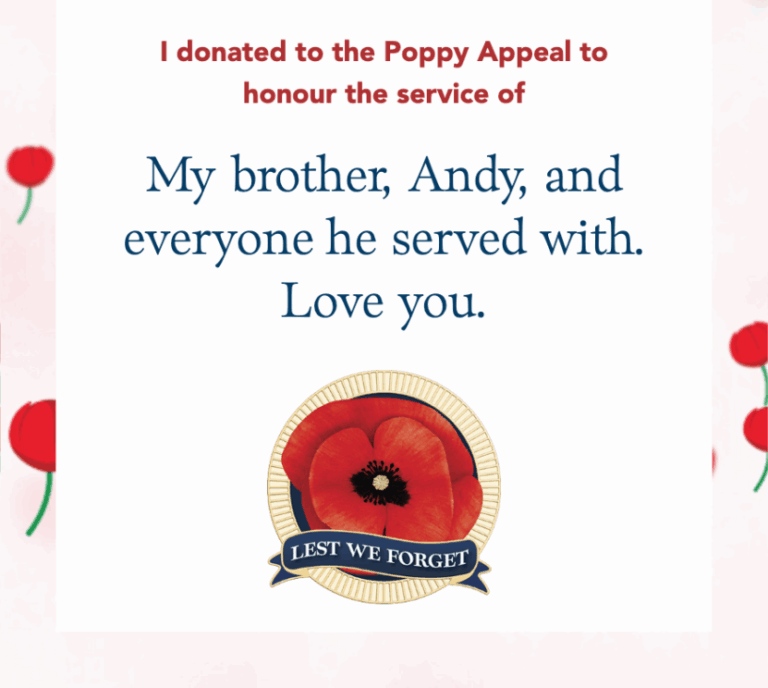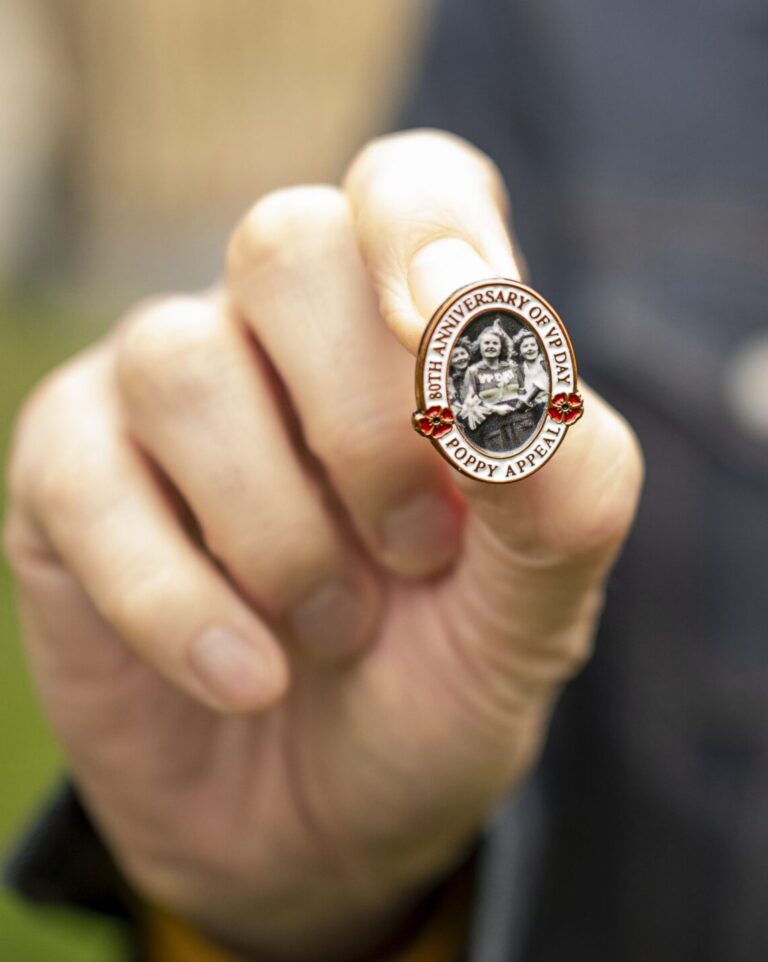The women who helped win the war have turned 104
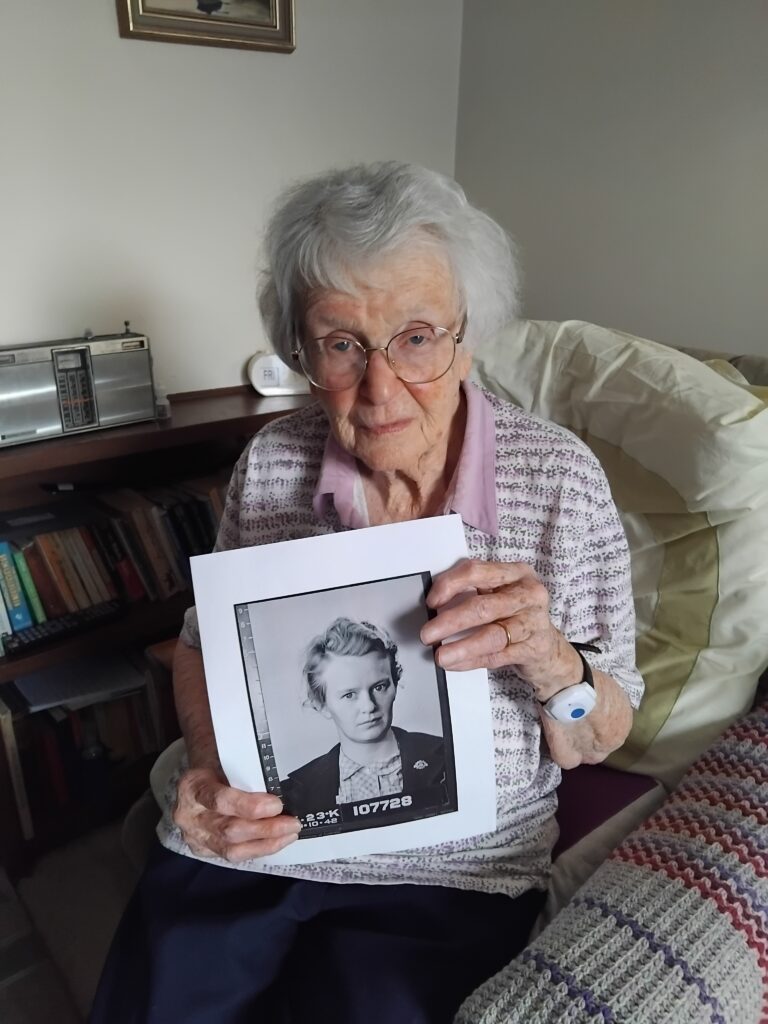
Helen Scott (nee Stephenson) and Monnie Mayor (nee Bowman) are veterans of the Second World War who share two things in common. They are both 104 years old and are both members of Waverley RSL Sub-Branch.
In July Fil Di Bianco, the welfare officer at Waverley RSL, was planning Helen’s 104th birthday party when it was suggested that the Sub-Branch celebrate all of their female centenarians.
“We have five,” Fil Di Bianco said. “Helen and Monnie are our oldest members, both 104 years old but we also wanted to celebrate Joan Gunn, who is 101, Gladys Butler, 102, and Linda Westwood who is 100. The idea for the party just kept on snowballing and getting bigger and bigger.”
While the party was held to coincide with Helen’s birthday, she found herself in the unusual position of not being the oldest person at her 104th birthday. Helen was born in July while Monnie was two months older, having been born in May 1921.
Monnie Mayor was born in Ballarat but by the time the war broke out in 1939 she was living in Mt Dandenong with her father and working as a salesgirl at Coles.
“When the war happened, people were put into essential services,” Monnie said. “I wanted to do nursing in the army, but I realised that they might say to me you can go to the Royal Melbourne hospital, they are important too. I wanted to be in the services,” she said.
“I had been to these big old houses in Toorak which had been taken over by the government. They put in rows and rows of these more code keys because they badly wanted wireless operators.”
After her shift at Coles Monnie would go for training as a wireless operator.
“I had to learn to code at 20 words a minute. But they so badly wanted people they took them from scratch and trained them.”
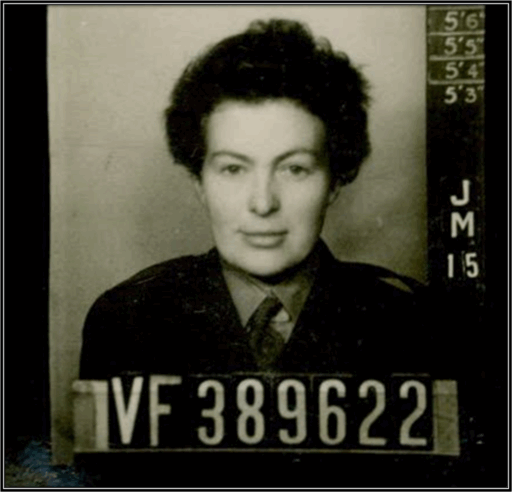
Accepted into the Australian Women’s Army she was initially based at Royal Park. In 1943 she was sent to the army base at Alice Springs in the Northern Territory. With Darwin under repeated bombardment from Japanese aircraft the administrative centre of the Northern Territory was moved to Alice Springs in 1942, growing from a town of 1000 to 8000 people in a matter of months.
Monnie worked decoding and sending messages as a wireless operator for the Army until August 1945 when they received word they were to be sent to Bougainville, still the site of heavy fighting between Australian and Japanese forces.
“But before we could go, we heard the Americans had dropped the bomb on Nagasaki and Hiroshima,” Monnie said. “So, it was all over. I went to Hiroshima after the war. It was dreadful what happened there.”
Her fellow 104-year-old, Helen Scott, was born in July 1921 in New South Wales, moving to Condobolin when she was five years old. Unlike Monnie she decided to go into nursing and enlisted in the RAAF Nursing Services (RAAFNS) in 1942. She trained as a nurse at Orange hospital before the RAAF sent her to bases across New South Wales.
Eventually she was sent to RAAF base in Laverton where she worked in the Central Sick Quarters.
Helen’s role was caring for RAAF airmen who had been medically evacuated from various theatres of war. It was not the physical injuries that concerned Helen as much as the mental.
“What caused me the most sadness was the airmen who were diagnosed with what they called ‘Shell shock’,” Helen said.
Now better known as PTSD Helen does not think it was well understood or given the attention that it deserved at the time.
As the war was coming to an end Helen left the RAAFNS and transferred to Royal Melbourne hospital to complete her nursing studies and become a full-time civilian nurse.
She started her studies on 14 August 1945. The next day she was in a class being overseen by very strict matrons.
“We heard the news that the war had ended,” Helen said. “I was young, and I wanted to go out and celebrate. We could hear people in the street yelling and having a great time, but we were not allowed to leave. We had to stay in class.”
Helen stayed with the Royal Melbourne hospital for four years before travelling to the UK where she met an Airman from the RAF who was to become the love of her life.
Together they travelled the world and had two children, 4 grandchildren and 4 great grandchildren.
Despite receiving a letter from the Queen on her 100th birthday her most prized letter came from the Minister of Veterans Affairs.
“Reading the letter, it sounded like I had won the war all by myself,” Helen said. “Though I would have been much happier if they gave me a Gold Card instead.”
